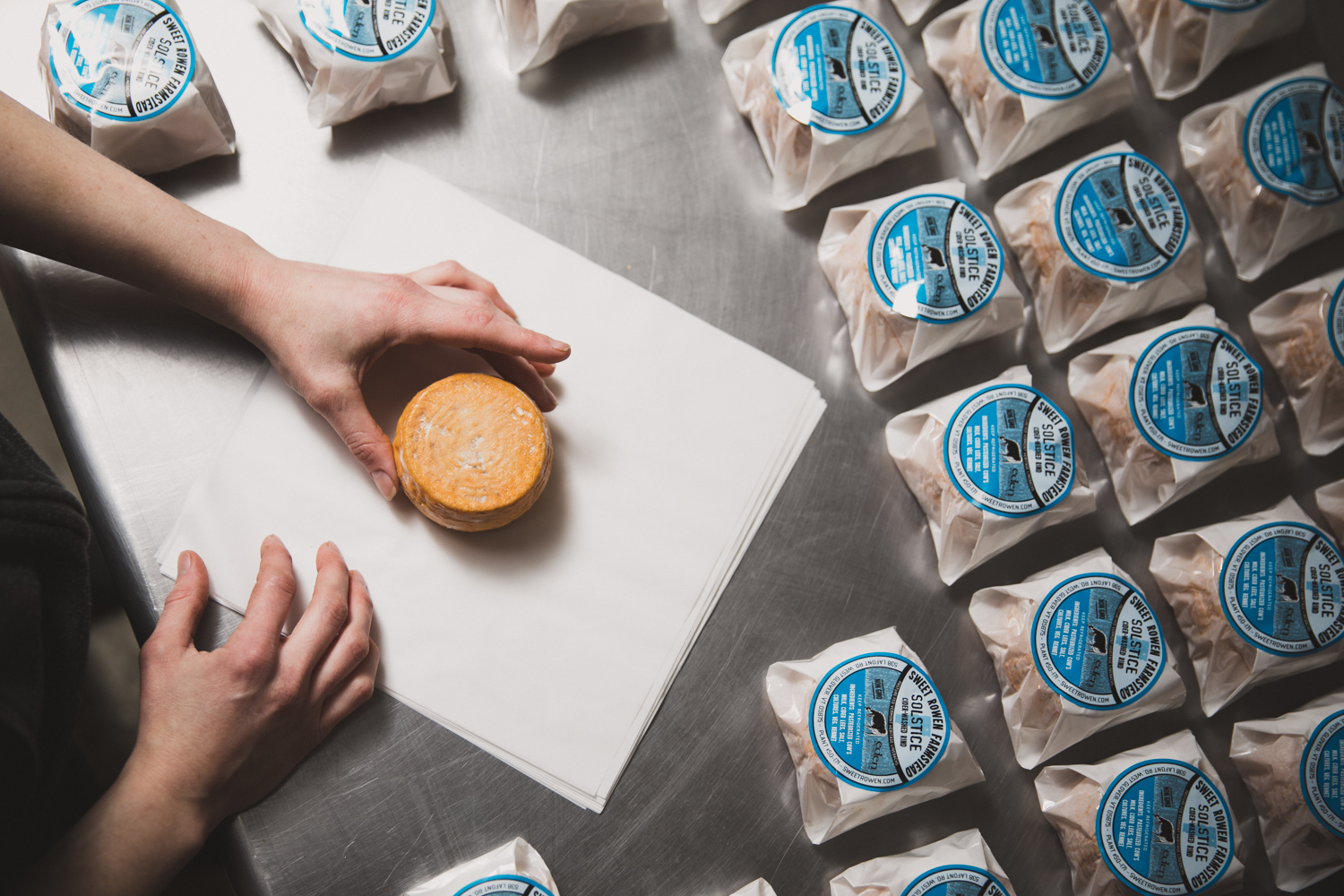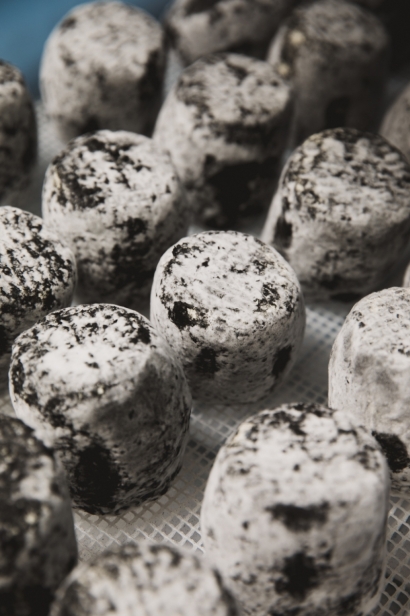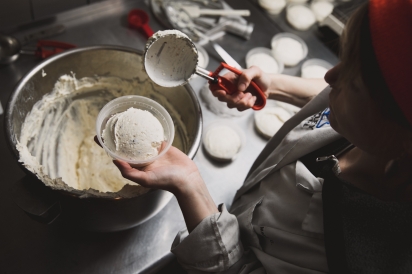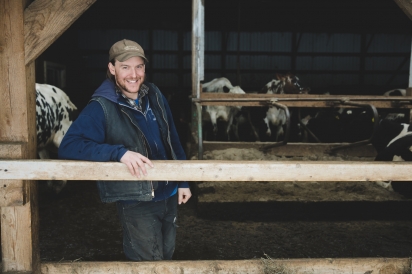Sweet Rowen Creamery
Everyone Paul Lisai ever worked for, especially the old dairy farmers, told him he was crazy to try and make a living milking cows. But now in his sixth year at the Sweet Rowen Creamery in West Glover, his wildly popular milk is on the shelves of stores not just in the Northeast Kingdom but throughout central Vermont, Burlington and as far away as Boston and New York City.
But Lisai has known from the start that you can’t just sell milk, no matter how popular it is. “Value added” is the mantra for most successful small farmers, whether it’s milk or animals or vegetables. “From the very beginning, our plan was to make cheese,” he explains.
A 2006 graduate of Sterling College with a degree in agro-ecology and a seventh-generation Vermonter, Lisai wanted to make sure he was doing the right thing and spent six months in New Zealand where he learned about rotational grazing—the system that moves cows from one pasture to another to ensure a good supply of grass.
Even so, Sweet Rowen had a rough beginning: A few months after Lisai started processing the milk in a rented facility, the bottling room had a terrible fire. Instead of quitting, he built his own creamery on land he inherited from his mother.
What began with six cows grazing the inherited land, plus another 260 acres he purchased and leased just up the road, has become a successful business. “We have 30 cows. We’re paying our bills,” says the 33-year-old Lisai, though he added that he’d only had three days off in the last five years.
Early on, the creamery hired a cheese maker who has been spending a lot of time mixing up milk and cultures to produce nine cheeses including Farmers Cheese in ve avors plus Mountain Ash and Storm. Two have already been awarded blue ribbons by the American Cheese Society and are even sold in Berkeley, California.
The other six cheeses are either sold only to wholesalers, or are not yet on the market. One standout, the newest, Jacuzzi under, is already showing signs of being a winner even before it has aged a full six months.
People are intrigued by why the whole milk—the only kind sold— tastes so good. Lisai has an explanation that begins with the cows themselves, 50% of which are Vermont Heritage Linebacks. The goal is to have a herd that is 100% Linebacks, descendants of cows that came to the state in the 1600s.
The taste is also directly related to what the cows eat—a pasture- based grass diet that produces more nutrient-dense milk. The animals are moved to new grass every 12 hours. The result is especially rich milk. For those old enough to remember when the cream rose to the top in the glass bottle—just perfect over cereal in the morning—that’s what Lisai’s cows provide.
Fans often describe the milk as “sweet.” So Sweet Rowen is appropriately named: “Rowen” is an old northern French (rewain)— Middle English (reywayn) word for the second cutting of grass which cows reportedly like best because of its sweetness.
In addition, the federal standard for whole milk is 3% butterfat. However, in the summer the butterfat content of Sweet Rowen’s milk is nearly 4% and in the winter upward of 5%. And since the milk isn’t homogenized, it retains a richer flavor.
The pasteurization process is also a factor, which Lisai describes as “gentle.” The milk is held at 145 degrees for 30 minutes whereas commercial milk is heated to 161 degrees for 15 seconds, which changes the milk. “That smells and tastes like milk,” he says, “but it is not ‘real milk.’”
The cows themselves are treated like family members, according to their owner. “We know all of the cows personally.” Even when they go into the barn for the winter, the cows are not tied up like more traditional herds. One side of the barn is left open and, according to Lisai, “Even when it’s 10 degrees outside and the cows have icicles on their noses, they are totally happy because they can move anywhere they want, walk around and breathe fresh air.”
The employees are likely happy, too: they are paid $15 an hour plus free meat and cheese.
Like any good businessman, Lisai is thinking ahead. He wants to add some other value-added business, perhaps cultured milk products like drinkable yogurt or maybe charcuterie.
And he is looking forward to the time when others can run the farm so he can travel and write more about where agriculture should be headed. For now the company is growing and making money, and Lisai takes pride in his work. “I like being connected to the tradition of farming, which is highly respected in the community and doing something the way it has been done for 150 years.”
Marian Burros believes that sampling cheese is one of the best perks of writing about food.








